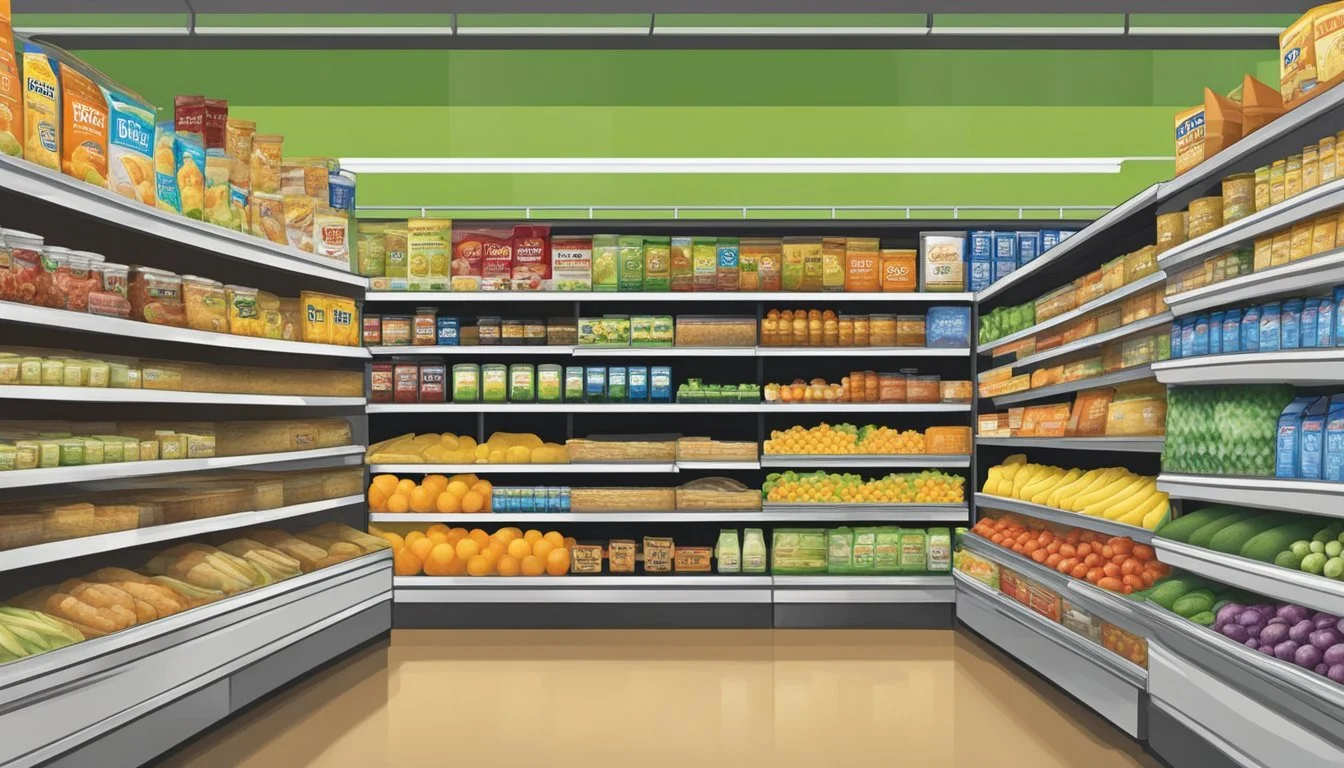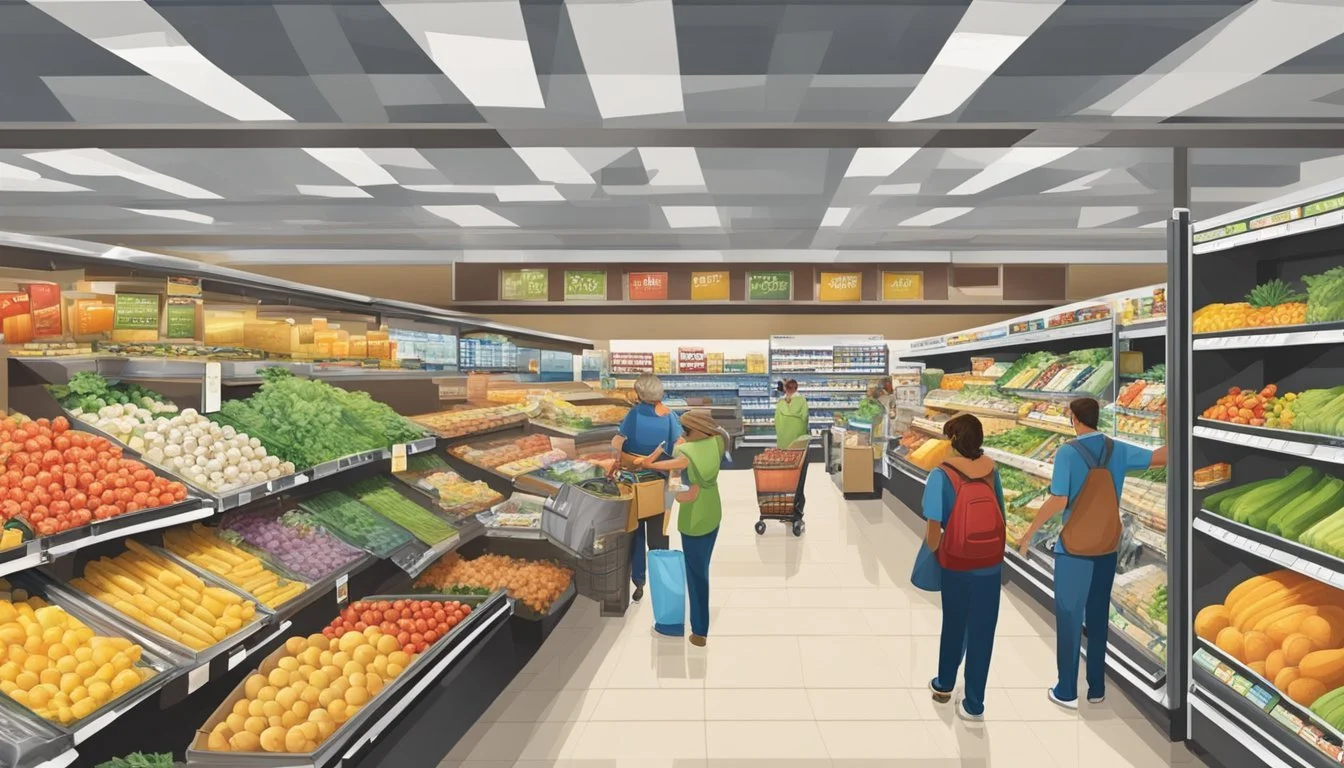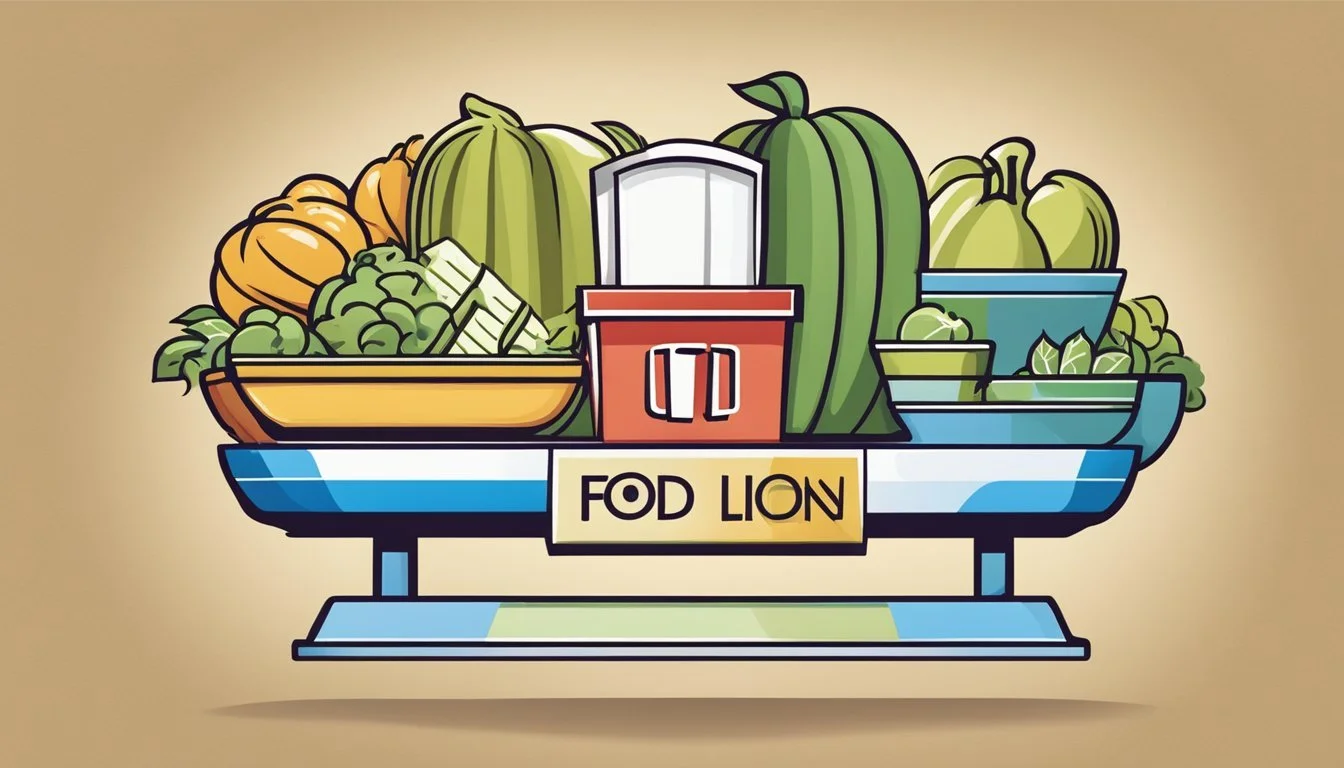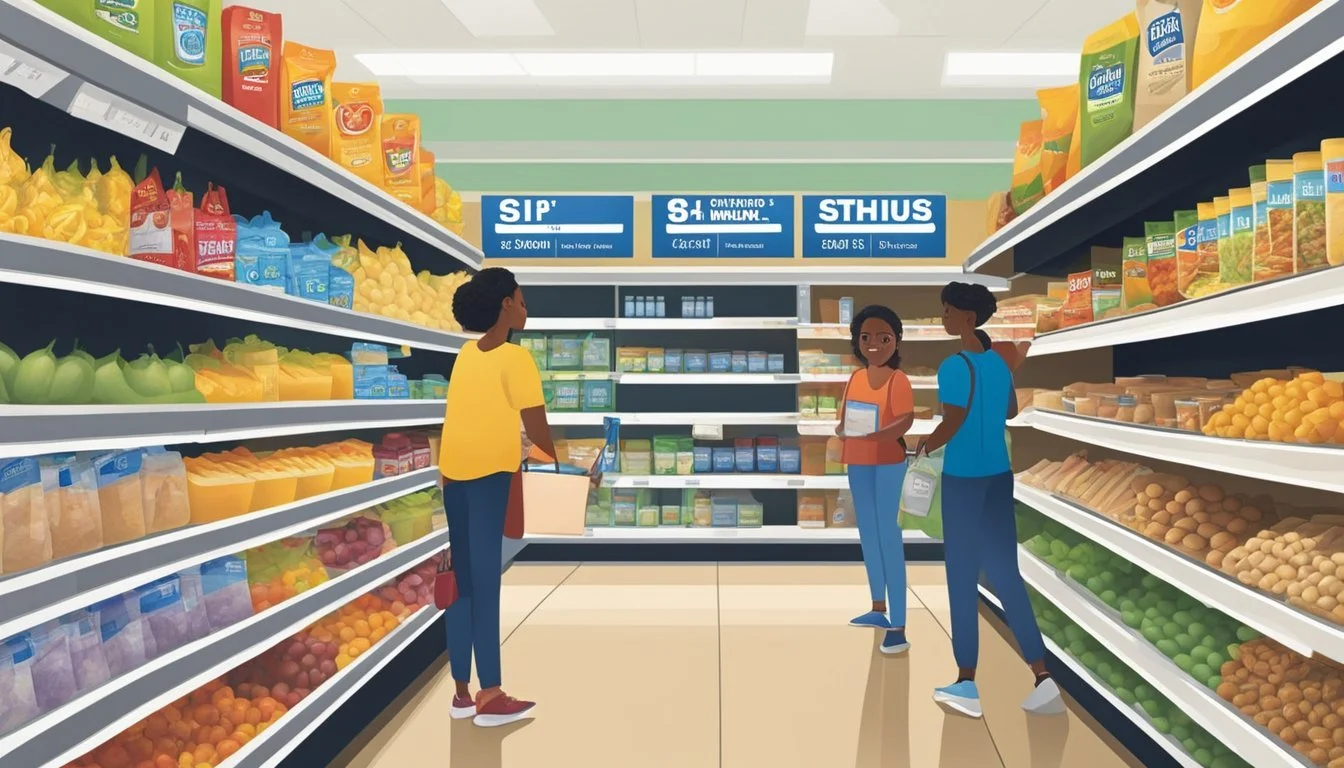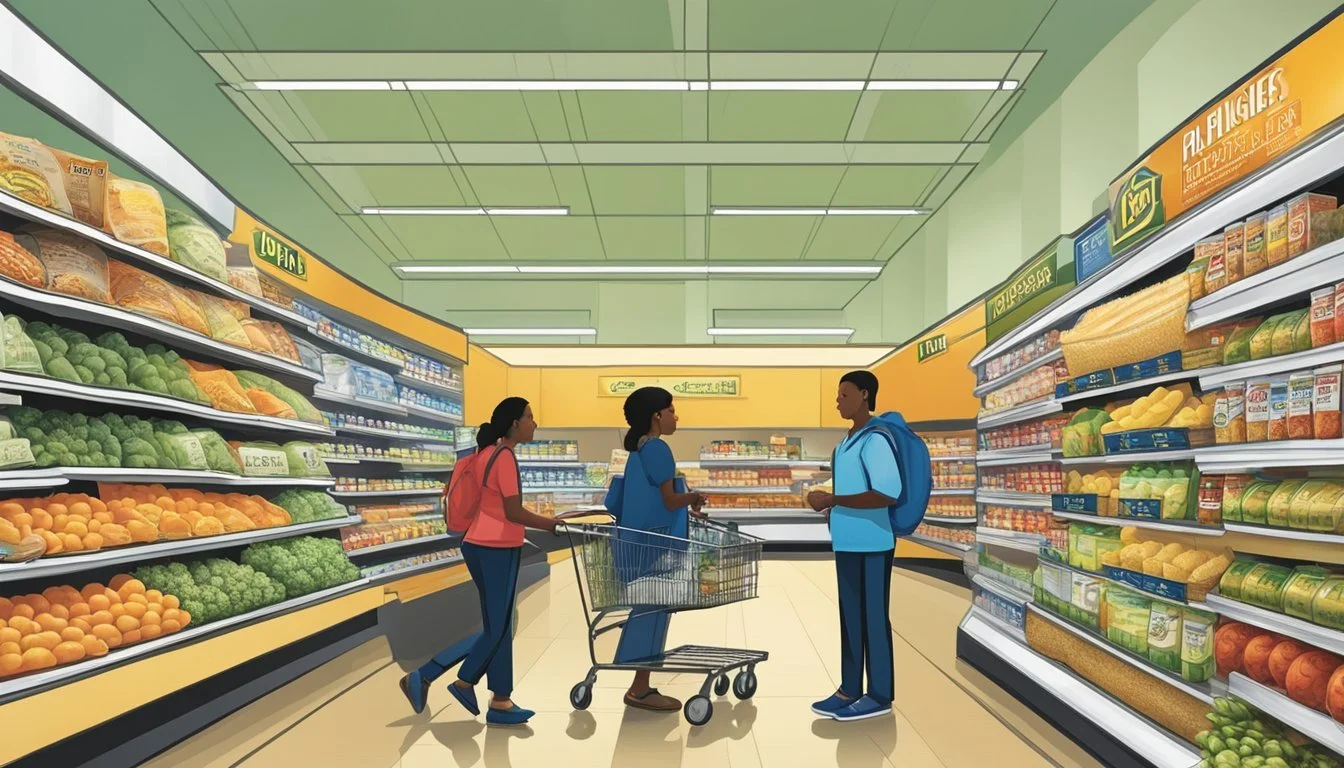Is Food Lion Cheaper Than Winn-dixie?
A Price Comparison of Two Popular Supermarket Chains
When it comes to grocery shopping, finding the best deals is a top priority for many consumers. Food Lion and Winn-Dixie are two popular supermarket chains in the southeastern United States, both known for their competitive pricing strategies.
While both stores offer competitive prices, Winn-Dixie's store brand SE Grocers is typically 20% cheaper than national brands for everyday items like sandwich bread and raw chicken. This pricing approach gives Winn-Dixie a slight edge in affordability for certain products.
Food Lion also offers its own store brands to compete on price, but specific comparisons between the two chains can vary depending on location and current promotions. Shoppers may find that prices fluctuate between the two stores, making it worthwhile to compare weekly ads and take advantage of loyalty programs to maximize savings at both Food Lion and Winn-Dixie.
Comparing Supermarket Brands
Store brands and private labels have become increasingly popular alternatives to national brands. Many shoppers now recognize the value these options provide.
Food Lion's private label offers competitive pricing and quality. Their store brand products aim to match national brands while costing less.
Winn-Dixie's SE Grocers line typically sells for about 20% less than comparable national brands. It maintains similar taste and quality standards.
Walmart's Great Value brand is known for its extensive product range and low prices. It often undercuts both national and other store brands.
Kirkland Signature, Costco's private label, has gained a reputation for high quality at competitive prices. Many consumers consider it equal or superior to national brands.
When comparing supermarket brands, consider:
Price differences
Quality and taste
Product selection
Packaging
Return policies
Store brands generally offer savings of 15-30% compared to national brands. However, quality and selection can vary between retailers.
Blind taste tests often show consumers cannot distinguish between store and national brands for many products. This suggests private labels can offer good value without sacrificing quality.
Price Comparison
Food Lion and Winn-Dixie employ different pricing strategies to attract customers. Both aim to offer competitive prices, but their approaches and results vary across product categories and locations.
Price Benchmarking Among Competitors
Food Lion and Winn-Dixie face stiff competition from retail giants like Walmart and Costco. Walmart often emerges as the price leader, with a recent study showing a grocery basket costing $119.44 at Walmart compared to higher prices at other chains.
Winn-Dixie positions itself as a cost-effective option, offering some items like sandwich bread and raw chicken at approximately 20% less than national brands. Their SE Grocers private label provides similar quality to national brands at lower prices.
Food Lion's pricing strategy is less prominently marketed, but they strive to remain competitive in local markets. Both chains use weekly sales, digital coupons, and loyalty programs to enhance value for customers.
Quality Versus Cost
While price is crucial, quality also plays a significant role in overall value. Winn-Dixie's SE Grocers line aims to match national brand quality at lower prices. Food Lion focuses on offering fresh produce and meats at competitive rates.
Product quality can vary between chains:
Produce freshness
Meat selection and quality
Private label taste and ingredients
Prepared foods options
Customers often weigh these factors against price when choosing where to shop. Some may opt for slightly higher prices if they perceive better quality or selection.
Impact of Location on Pricing
Pricing strategies for Food Lion and Winn-Dixie can vary significantly based on location. As regional chains, they adjust prices to local market conditions and competition.
Food Lion primarily operates in the Mid-Atlantic and Southeast regions, while Winn-Dixie focuses on the Southeast. Factors affecting local pricing include:
Regional cost of living differences
Local competition intensity
Distribution and logistics costs
State and local taxes
In areas with more competition, both chains may offer more aggressive pricing and promotions. Rural locations with fewer alternatives might see slightly higher prices due to reduced competition and higher operating costs.
Product Selection
Food Lion and Winn-Dixie offer distinct product selections that cater to different customer preferences. Both chains stock common grocery items while maintaining unique offerings in key departments.
Fresh Produce Offerings
Food Lion provides a diverse range of fresh fruits and vegetables, including organic options. Their produce section emphasizes affordability and local sourcing when possible. Winn-Dixie, on the other hand, often features a wider variety of exotic and specialty produce items. Both stores strive to maintain freshness, but Winn-Dixie's larger stores sometimes allow for more extensive produce displays.
Food Lion typically offers competitive prices on staple vegetables like potatoes, onions, and carrots. Winn-Dixie may have a slight edge in organic produce selection, particularly in larger locations.
Meat and Dairy Variety
The meat departments at both chains stock essential cuts of beef, pork, and poultry. Winn-Dixie often boasts a more expansive selection of premium cuts and specialty meats. Their butcher counters frequently offer custom cuts and a wider range of marinated options.
Food Lion focuses on value-priced meats and family packs. Both stores carry a standard assortment of dairy products, including milk, cheese, and yogurt. Winn-Dixie may offer more variety in artisanal cheeses and specialty dairy items.
Bakery and Prepared Foods
Winn-Dixie generally excels in the bakery department, offering a broader selection of freshly baked goods, including artisan breads, custom cakes, and gourmet pastries. Their in-store bakeries often produce a wider variety of items daily.
Food Lion's bakery sections are typically more modest but still provide essential items like sandwich breads, rolls, and basic cakes. In terms of prepared foods, Winn-Dixie usually offers a more extensive deli section with hot meals, salad bars, and ready-to-eat options. Food Lion's prepared food selection is more limited but focuses on convenient, grab-and-go items.
Grocery Stores' Services and Experience
Food Lion and Winn-Dixie offer distinct shopping experiences. Each store provides unique services and amenities that cater to different customer preferences and needs.
Shopping Convenience
Food Lion emphasizes a quick and efficient shopping experience. Their stores typically feature a straightforward layout, making it easy for customers to find what they need. Many Food Lion locations have self-checkout options to reduce wait times.
Winn-Dixie stores often have a larger footprint. They provide wider aisles and more specialized departments. This can make shopping more leisurely but may require more time to navigate.
Both chains offer loyalty programs. These allow customers to earn points and receive personalized discounts on frequently purchased items.
Customer Service and Cleanliness
Food Lion prioritizes a clean shopping environment. Their staff regularly maintains store cleanliness throughout the day. Customer service at Food Lion is generally prompt and focused on efficiency.
Winn-Dixie places a strong emphasis on customer relationships. Their employees often engage in more personal interactions with shoppers. The stores maintain a high standard of cleanliness, with particular attention to their fresh produce and deli areas.
Both chains train their staff to assist customers with product locations and general inquiries. However, Winn-Dixie may offer more specialized knowledge in departments like the bakery or meat counter.
Online Shopping Options
Food Lion provides online shopping through their "To-Go" service. Customers can order groceries online for curbside pickup at select locations. The service is user-friendly and allows for easy reordering of previous purchases.
Winn-Dixie offers a similar online shopping experience. Their platform includes options for both delivery and pickup. Winn-Dixie's online interface often features digital coupons and personalized deals based on shopping history.
Both stores have mobile apps that enhance the digital shopping experience. These apps allow customers to create shopping lists, access digital coupons, and track loyalty rewards.
Loyalty and Discounts
Both Food Lion and Winn-Dixie offer loyalty programs to provide value to their customers. These programs typically include discounts, coupons, and other perks for regular shoppers.
Food Lion's MVP program allows customers to earn points on purchases and access digital coupons. Members can save these coupons to their account for easy redemption at checkout.
Winn-Dixie's rewards program, SE Grocers rewards, provides similar benefits. Shoppers earn points on purchases and can redeem them for discounts on groceries or gas.
Both stores frequently offer digital and print coupons to help customers save money. These coupons can be combined with loyalty program discounts for additional savings.
Food Lion and Winn-Dixie also run weekly sales and promotions. Savvy shoppers can take advantage of these deals to reduce their grocery bills.
Some locations may offer senior discounts or military discounts on certain days of the week. Customers should check with their local store for specific details on these offers.
By utilizing loyalty programs, coupons, and sales, shoppers at both chains can significantly reduce their grocery expenses. The potential savings make these programs worthwhile for regular customers.
Store Location and Accessibility
Food Lion and Winn-Dixie have distinct footprints across the United States. Food Lion operates primarily in the Mid-Atlantic and Southeastern regions, with a strong presence in states like North Carolina, Virginia, and Georgia.
Winn-Dixie stores are concentrated in the Southeastern U.S., particularly in Florida, Alabama, Louisiana, Georgia, and Mississippi. This geographic distribution affects accessibility for shoppers in different areas.
Food Lion typically has more locations overall, potentially offering greater convenience in its service areas. The chain often places stores in both urban and rural communities, aiming to reach a wide customer base.
Winn-Dixie tends to focus on larger stores in suburban and urban areas. This strategy may result in fewer total locations but can provide more spacious shopping environments.
Both chains consider factors like population density and local competition when selecting store sites. This approach aims to balance customer convenience with operational efficiency.
Store hours can impact accessibility. Many Food Lion and Winn-Dixie locations operate extended hours, with some stores open 24 hours in certain markets. This flexibility caters to diverse shopping schedules.
Online ordering and delivery services have expanded both chains' reach beyond physical store locations. These options enhance convenience for customers who prefer digital shopping or have limited mobility.
Consumer Perception and Brand Trust
Consumer perception plays a crucial role in grocery store preferences. Both Food Lion and Winn-Dixie have established their own brand identities in the competitive supermarket landscape.
Food Lion is often perceived as a budget-friendly option. Many shoppers associate the chain with affordable prices and a no-frills shopping experience. This perception has helped Food Lion build a loyal customer base among cost-conscious consumers.
Winn-Dixie, on the other hand, tends to be viewed as a more traditional supermarket. It has cultivated an image of offering a wider range of products and a slightly more upscale shopping environment compared to Food Lion.
Customer service can significantly impact brand trust. Both chains strive to provide satisfactory experiences, but individual store performance may vary. Surveys have shown mixed results, with some customers praising the helpfulness of staff at both chains.
Store brands play a key role in shaping consumer perception. Winn-Dixie's SE Grocers line has gained recognition for offering quality comparable to national brands at lower prices. This has helped boost trust in Winn-Dixie's private label offerings.
Grocery shopping habits and preferences differ among consumers. Some prioritize price above all else, while others value product selection or store atmosphere. These factors influence individual perceptions of which chain offers better overall value.
Market Competition and Share
Food Lion and Winn-Dixie operate in a highly competitive grocery market. Both chains face stiff competition from larger national players and discount retailers.
Walmart stands out as a formidable competitor, often offering the lowest prices on many grocery items. A CBS News study found Walmart's prices to be consistently competitive.
Other key competitors include:
Market share varies by region, with Food Lion and Winn-Dixie having stronger presences in specific areas of the southeastern United States.
Food Lion's parent company, Ahold Delhaize, reported 2,048 stores in the U.S. as of 2021. Winn-Dixie's parent, Southeastern Grocers, operated 423 Winn-Dixie locations in 2021.
Both chains employ various strategies to remain competitive:
Private label products
Loyalty programs
Digital coupons
Weekly specials
Food Lion focuses on everyday low prices, while Winn-Dixie emphasizes fresh produce and local products.
Consumer surveys indicate price remains a top factor in grocery store selection. However, factors like store cleanliness, product quality, and customer service also play significant roles in market share retention.
Analysis of Store Brands and Labels
Store brands play a crucial role in determining price differences between Food Lion and Winn-Dixie. Both chains offer their own private label products as alternatives to national brands.
Food Lion's store brand includes items labeled under the "Food Lion" name. These products typically cost less than comparable national brands while aiming to maintain similar quality.
Winn-Dixie's private label is called "SE Grocers." This brand usually prices items up to 20% lower than national brand equivalents. SE Grocers covers a wide range of everyday products, from bread to chicken.
When comparing store brands, price and quality are key factors:
Food Lion Brand: Generally affordable, covers most basic grocery categories
SE Grocers (Winn-Dixie): Priced up to 20% less than national brands, wide product range
Great Value (Walmart): Often lowest-priced option, extensive product selection
Store brands allow both chains to offer competitive pricing. However, the specific savings can vary by product category and individual item.
Shoppers often find the best values on everyday essentials when choosing store brands. Items like milk, bread, and basic pantry staples frequently offer the most noticeable price differences compared to national brands.
Summary and Final Thoughts
Food Lion and Winn-Dixie both strive to offer competitive prices to attract budget-conscious shoppers. Neither chain consistently emerges as the cheapest option across all product categories and locations.
Price comparisons between the two stores can vary depending on specific items, sales, and regional differences. Both chains utilize loyalty programs and weekly specials to provide additional savings opportunities for customers.
When considering overall value, factors beyond just price come into play. These include product quality, store atmosphere, customer service, and convenience of locations.
Budget-minded shoppers may find lower prices at discount chains like Walmart, Aldi, or Lidl compared to either Food Lion or Winn-Dixie. Careful comparison shopping and taking advantage of sales and promotions can help maximize savings at any grocery store.
Ultimately, the "cheaper" option between Food Lion and Winn-Dixie may depend on individual shopping habits, preferred products, and local market conditions. Shoppers are encouraged to compare prices on their commonly purchased items to determine which store offers the best value for their needs.


